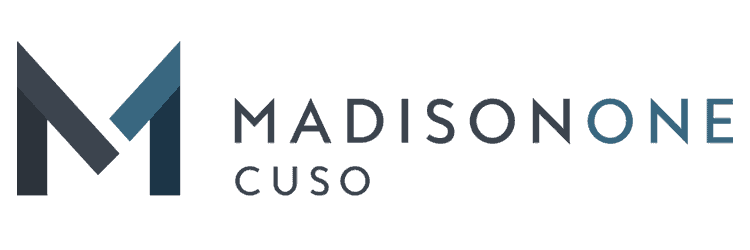 https://m1cuso.com/wp-content/uploads/2025/03/Main-Power-Plant-Energy-ideas-And-energy-saving.jpg
1250
2000
AbstraktMarketing
/wp-content/uploads/2022/09/logo-madione-1.png
AbstraktMarketing2025-03-27 11:28:322025-03-27 11:28:362025 Energy Sector Trends We’re Anticipating
https://m1cuso.com/wp-content/uploads/2025/03/Main-Power-Plant-Energy-ideas-And-energy-saving.jpg
1250
2000
AbstraktMarketing
/wp-content/uploads/2022/09/logo-madione-1.png
AbstraktMarketing2025-03-27 11:28:322025-03-27 11:28:362025 Energy Sector Trends We’re AnticipatingThe Impact of Industry Trends on Obtaining Loans for Business Acquisition
In today’s business world, acquiring the right loan can make or break a business entity. This makes it paramount to understand the industry trends affecting loan acquisition processes. Get an in-depth look into the key industry trends that influence the acquisition of loans for businesses—a crucial aspect of the financial world that is often overlooked. Understanding these trends can be pivotal in obtaining advantageous loan conditions.
An Overview of Business Acquisition Loans
Business acquisition loans are a type of financing small business owners use to purchase an existing business. They provide the necessary capital to acquire other companies, equipment, and other initiatives, enabling strategic opportunities, market diversification, and the harnessing of synergies. Without these loans, many businesses would struggle to finance acquisitions and miss out on avenues for increased competitiveness and profitability.
Business acquisition loans are usually secured, meaning the borrower must put up collateral. This often results in the acquisition of business assets. Common types of lenders for business acquisition loans include banks, credit unions, and online lenders. For example, the Small Business Administration also offers SBA 7(a) loans that can be used for acquiring a business. Terms often range from 5-25 years with variable or fixed interest rates.
Compared to startup loans, acquisition loans usually require better personal credit, higher down payments, and a lower loan-to-value ratio. Borrowers need good credit scores of 680+ and at least 20-30% for the down payment.
Key Industry Trends Impacting Loans for Business Acquisition
Monitoring industry trends provides critical insights for buyers seeking business acquisition loans. This helps set expectations, improve readiness, and boost chances of securing financing with favorable terms. Several industry factors can impact both the availability and costs of business acquisition loans, including:
- Interest Rates – When the Federal Reserve raises rates, acquisition loan rates also increase. This increases borrowing costs. Tracking rate hikes help anticipate financing expenses.
- Lending Regulations – Tighter lending standards may require higher down payments or lower LTVs. Following regulatory changes helps buyers prepare stronger applications.
- Economic Changes – During a recession, lenders are more cautious. Weaker economic outlooks make qualifying more difficult. Knowing the economic climate aids readiness.
- Industry Performance – Lenders look at the financials of the industry being acquired. Thriving sectors mean lower risk. Understanding industry outlooks assists with lender assessments.
- Business Valuations – Acquisition costs fluctuate with valuations. Monitoring valuation trends helps set realistic price expectations when seeking funding.
- Loan Demand – When demand is high, lenders may restrict approvals to lower-risk deals. Tracking demand helps forecast availability.
Find adequate business acquisition financing through Madison One CUSO. Learn more.
Comparing Business Acquisition Loan Options
Despite various industry and market trends, several financing options exist for funding a business acquisition. Comparing loan types helps identify the best fit based on factors like cost, eligibility, timing, and more:
- Banks – These institutions offer term loans, like USDA and SBA 7(a) loans. Approval can be lengthy but low rates. Typically, banks are best for buyers with strong credit profiles.
- Credit Unions – With this option, memberships are required. Credit unions offer flexible lending criteria and terms, along with lower rates than alternative lenders.
- Online Lenders – Online lenders offer fast approvals and funding but higher rates. These are best for quick financing and weaker credentials.
Factors like loan amount, purpose, collateral, credit score, revenue, desired repayment term, and speed of funding should guide the loan comparison process. Consulting with a business finance advisor can help identify the most suitable options.
Stay Updated With Regulatory Changes
As you shop for loans for business acquisition purposes, stay updated with industry trends. Loan regulations and requirements can change frequently, so staying up-to-date on the latest rules is essential when seeking financing. Spend time researching the regulations around SBA loans, USDA loans, microloans, equipment financing, and any other type of business loan you may pursue.
For example, the SBA periodically adjusts size standards that determine eligibility for SBA 7(a) and 504 loans. The maximum loan amounts available may also rise. Understanding the latest criteria could qualify or disqualify your application.
Regulatory changes around credit scores, required down payments, loan terms, and interest rates can all significantly impact both your eligibility and the affordability of different loan products. Conduct thorough research to ensure you pursue options with the highest probability of approval.
Key Takeaways
Obtaining financing for your business can be complex, but keeping the following best practices in mind will optimize the process:
- Regularly analyze macro and micro economic factors to understand the business lending landscape
- Stay updated on regulatory changes around business loans that may impact qualifications or affordability
Secure Funding for Your Business With Madison One CUSO
Are you looking to expand your business or enter a new industry? Consider acquiring an established company. With a business acquisition, you can quickly gain a team of experienced professionals and start immediately. The only challenge? Finding the funds to acquire the business. Luckily, Madison One CUSO is here to help.
If you’re a small business owner or operate in a rural area, our government-guaranteed business loans could be the answer you’ve been searching for. With financing options like low equity injection, minimal collateral requirements, and no restrictive covenants, you can secure $5-$25 million in funding!
The USDA loan program offers up to $25 million for rural businesses, while the SBA loan program can provide up to $5 million for small companies. Both options have low equity requirements and flexible collateral standards, making them ideal for business acquisitions.
The Madison One Difference
At Madison One CUSO, we’re not just a lender—we’re your partner in success. Our team of experts will guide you through the application process and provide ongoing support, allowing you to focus on preparing your business for its next chapter.
Connect with us and determine your loan eligibility today.





